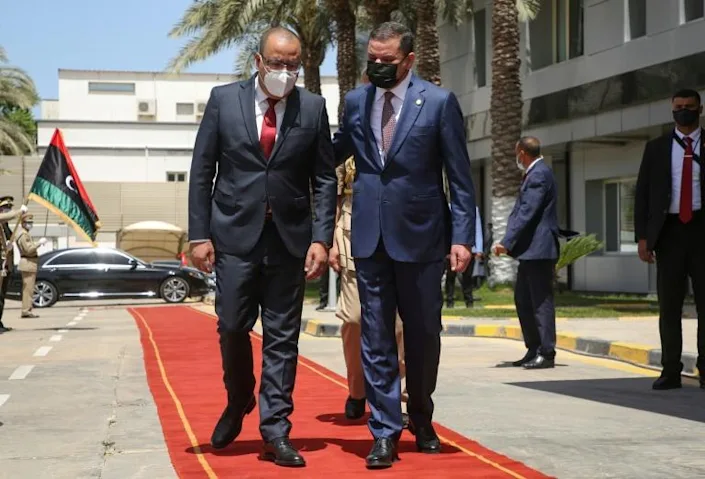The prime minister of Tunisia, which is struggling with a deep economic crisis, called Saturday for a relaunch of economic cooperation with Libya at the start of a two-day visit.
“Our economies complement each other, and what is good for Libya is also good for Tunisia,” Mechichi said after landing in the capital of the oil-rich neighbouring country.
He was accompanied by several government ministers and around 100 business leaders expected to take part in a joint economic forum in Tripoli.
Ten years since Tunisia’s 2011 revolution, the North African country faces political and economic crises compounded by the coronavirus pandemic and lockdown measures.
Unemployment has risen to 18 percent, with predictions it could reach 20 percent by the end of the year, according to a joint study by the government and United Nations.
The IMF expects the country will see GDP growth of 3.8 percent this year, after an unprecedented 8.9 percent contraction in 2020.
“We will not abandon Tunisia to face alone the effects of the coronavirus pandemic or its political and security situation,” said Libya’s Prime Minister Abdulhamid Dbeibah.
He said Libya would remove restrictions on imports from Tunisia and Tunisian workers in the country would be given official papers.
Libya and Tunisia also signed an accord aimed at “facilitating commercial trade and the movement of citizens” between the two states.
Libya descended into chaos following the 2011 revolution that toppled and killed veteran dictator Moamer Kadhafi.
The turmoil sharply reduced cross-border trade and turned Libya into a launchpad for a series of bloody jihadist attacks in Tunisia.
But ties have improved since Dbeibah was sworn in earlier this year under a UN-led process to restore stability in Libya.
Tunisian President Kais Saied visited Libya in March, and TunisAir announced Tuesday it has resumed flights to Libya.

